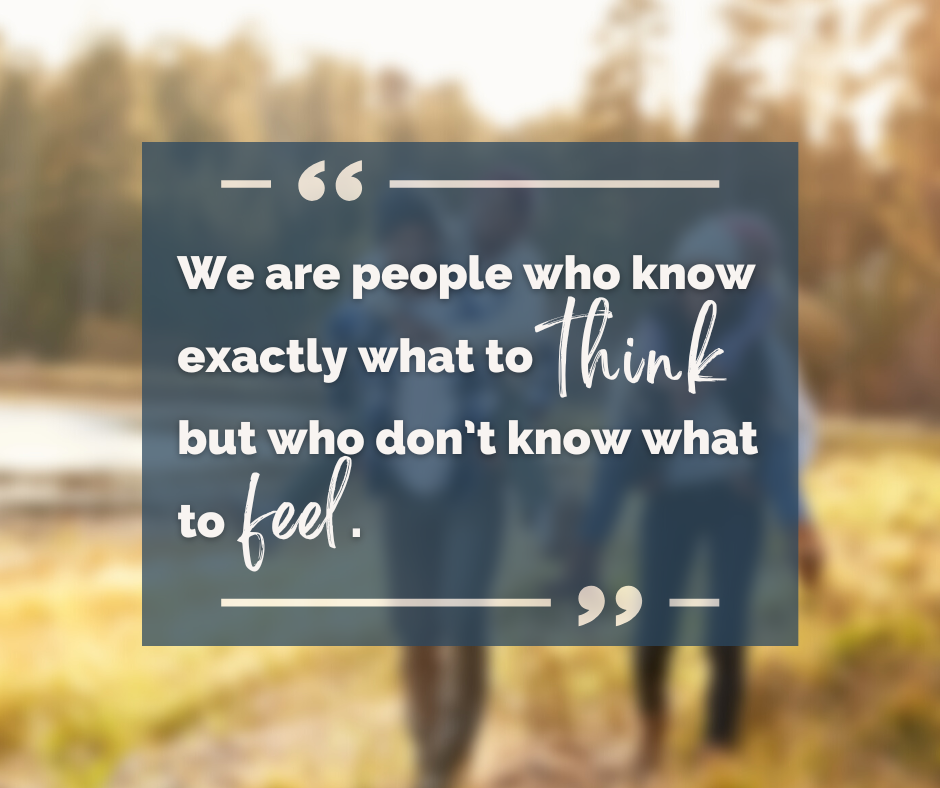How Can We Get Beyond The Bitterness and Division In Our World?

The virulent conflict we experience in our world is fueled by a need on both sides to win at all costs, to be right and—even more important—to prove others wrong. We all have the “talking points” committed to memory. We can rally the facts and marshal the stats to “take down” another person. Yet even when we “win,” we know that something is wrong.
The trouble is, we are people who know exactly what to think, but who don’t know what to feel. When we step back from all the wars, the personal attacks, we wonder how people could be so arrogant, so cruel. How can we make demons of our brothers and sisters?
St. Augustine defined virtue as ordo amoris, rightly ordering the affections of the heart. That may sound sentimental, but in fact it arose from a deep conviction that people—especially young people—need to be taught first how to feel, and only then how to think. First we learn to feel revulsion in the presence of cruelty, and admiration in the presence of sacrificial love. To feel disgust in the presence of a lie, and deep sympathy with someone in pain. We learn to rank order our loves, understanding that to love a car or a career more than a son or daughter is beneath our humanity.
Once your affections have been ordered, your thinking will be sound. But it doesn’t work the other way around. If we teach people merely how to think before learning what to love, what we produce are purely rational people without a moral compass, who seek to win, succeed, achieve no matter the human cost. But if we teach people first how to love, then they are prepared to develop and use their minds to accomplish what is good and right for everyone.
The best response to the crazy and chaotic fights that consume us is to spend time in quiet self-examination. Asking, Are my loves rightly ordered, or do I have some work to do, to turn my heart toward something greater? What out-of-control feelings are distorting my thoughts? What should I love more than anything in the world?
Question for Today:
How Can We Get Beyond the Bitterness and Division In Our World?
(Hint: It starts not with that person you have in mind, but with you.)
Question #7 “Is God Omnipotent?” comes Thursday March 9.
Thank you, David. These Lenten meditations have been my primary practice. The other day we were comparing notes, some friends and I, sharing what we were doing for Lent and I mentioned this blog and the discipline or reading your piece, then reflecting, then writing. Very helpful. Thanks so much for getting the conversation going.
I learn so much in the ensuing conversation–thanks!
Thanks, David. Perhaps that’s why Paul wrote that love abides while knowledge does not – faith, hope, and love are not contained by thought. Peace, Johnna
That’s well put. The mind can nest inside the heart, but the heart is too spacious to fit inside the mind.
“The best response to the crazy and chaotic fights that consume us is to spend time in quiet self-examination.” Yes! In making this a routine practice one will change their life experience and the world for the better.
The “monkey mind” aka “the voice inside my head” aka “the I know mind” aka “mental machinery” aka “the ego” never sleeps. In rapid fire it shoots out thoughts like a tennis ball machine fires out tennis balls. The thoughts of this mind, though, are not our own.
Our thoughts are the thoughts of God. Not our thoughts about God but God’s thoughts. The never ending stimulus/response based chatter of the monkey mind obfuscates the thoughts of God like clouds that hide the Sun. It is in the stillness and quite where we can feel and hear the thoughts of God, which are our own thoughts that exist in a state of pure integrity; never fragmented.
This quote from Victor E. Frankl points to this space of quiet and stillness where we can join with God. “Between stimulus and response there is a space. In that space is our power to choose our response. In our response lies our growth and our freedom.”
Throughout my journey as Monte, I have always managed to somehow find or make the time for contemplation. It is time I have always valued but now, deeper into my journey, I value more than any other time. For the past couple of decades that time has typically been in the early morning before the city wakes up when it’s usually dark, still and quiet. And here in the darkness of early morning, within the quietness and stillness of this space, fueled with a cup of strong, black coffee I turn off the monkey mind and just listen to God.
When we listen to the monkey mind and misidentify it as being our own mind we are using the tools from its toolbox. And this makes for a very fragmented, polarized, chaotic world. A monkey mind’s toolbox of essentials for both offense and defense: Labels – they are the knives we use to carve away at unity. Opinions, interpretations, emotions and judgements – they’re the weapons we use to protect ourselves from the truth. And then there’s Blame – we use it to relieve ourselves of responsibility and guilt.